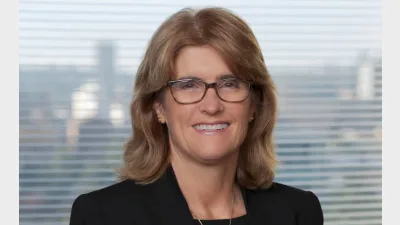Cbus directors deemed ‘fit and proper’ by Deloitte review



An independent review of Cbus conducted by Deloitte has deemed that “all existing and new directors” on the fund’s board have satisfied a ‘fit and proper persons test’.
In a statement on Tuesday, Cbus said Deloitte, which is conducting an ongoing independent review at the direction of APRA, has deemed all Cbus directors “fit and proper”.
Under Commonwealth law, directors of superannuation fund boards, including Cbus, are required to meet a ‘fit and proper persons test’ to ensure they possess the necessary skills, experience, and knowledge, as well as demonstrate honesty, trustworthiness, integrity, and independence of thought to effectively safeguard members’ savings.
Following a rigorous evaluation under this test, the fund said its board has confirmed the appointment of three directors nominated by the CFMEU.
The CFMEU can nominate three of the 14 positions on the board. Those confirmed are Paddy Crumlin, currently the national president of the CFMEU; Jason O’Mara, currently the general manager of operations at the Canberra Tradesman Union Club; and Lucy Weber, currently the director of legal and industrial programs in the national office of the CFMEU.
“After applying a comprehensive ‘fit and proper persons test’ the Cbus Board confirmed the appointment of three directors who share a determination to generate the strongest, sustainable financial returns for members and deliver the best possible service,” a Cbus spokesperson said.
“Maintaining equal employer and union representation has been central to our success over 40 years so we’re happy to welcome Jason back and look forward to Lucy and Paddy bringing their knowledge of our sectors to achieve the best possible retirement outcomes and meet the challenges of rapid growth.
“The board is committed to further enhancing its collective skills mix to ensure it is well positioned to approach increasingly complex investment, market and regulatory environments.”
Super Review understands that Deloitte’s independent review of the fund is likely to be published before the end of the year.
In the meantime, we understand Cbus has paused payments to the CFMEU and will await the findings of the review before taking further action.
On 27 August, directors Rita Mallia and O’Mara resigned from the Cbus board. The following day, the CFMEU administrator confirmed that CFMEU-nominated directors Mallia and O’Mara, as well as Dave Noonan would no longer serve as directors.
On 13 September, the union formally proposed nominees to the board that have now been confirmed.
On Tuesday afternoon, APRA released a statement stating that it is aware of the new appointments.
"However, as previously announced, APRA has imposed licence conditions on Cbus, requiring the trustee to engage an independent expert to conduct a review in relation to the requirements under Prudential Standard SPS 520 Fit and Proper and the trustee’s compliance with the duty to act in the best financial interests of members of the fund in making expenditure decisions," the regulator said.
According to APRA, the review is required to cover fitness and propriety policies, practices and decision made as they relate to both existing directors and appointees to the board.
"APRA is not yet satisfied that the processes required to be undertaken by Cbus under the licence conditions are complete. APRA expects Cbus to provide the independent review report in accordance with the licence conditions and, in light of decisions announced today by the Cbus board, will consider whether further action is appropriate."
Recommended for you
Advice licensee Centrepoint Alliance has entered an agreement to acquire the comprehensive financial advice book of the super fund’s subsidiary firm.
A coalition of industry groups including the SMSF Association is demanding the government and the opposition “immediately and unequivocally rule out any move to tax unrealised investment gains in any part of the tax system”.
AMP’s new chair has used his inaugural AGM address to call for policy reform on the “decumulation” phase of superannuation and position AMP as a key player in addressing the challenge.
Reserve Bank governor Michele Bullock has quashed hopes of an out-of-schedule rate cut, telling an event in Sydney that it remains too early to determine the trajectory of interest rates as the RBA grapples with growing global economic volatility.












